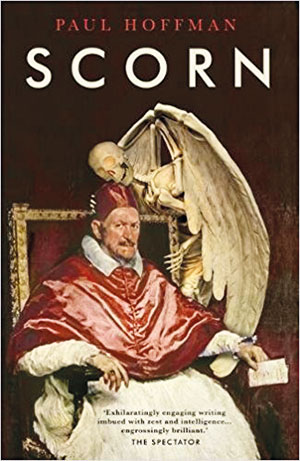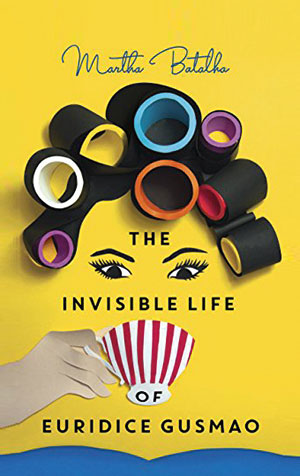Here’s a novel which had me from the prologue. Who could resist a book which begins by promising if you stick around for the full 500 pages you’ll be rewarded with a twist so astonishing it will make “piffle” of the Keyser Söze reveal and expose the Psycho shower scene as “utterly planking”? Which goes on to describe its own denouement as “a revelation to make your liver freeze, your eyes bulge in their sockets, and your hair stand out like quills upon a fretful porcupine”?
The overall mood is of Dostoevsky and Paul Beatty having a chinwag over a few beers
What’s so clever about the first page of Paul Hoffman’s new novel Scorn is how perfectly it sets the tone for this outrageous tale of vengeance, transmogrification and chomping on the dead flesh of priests. It’s a thrill-ride from start to finish, especially exciting if you like the hinges on your rollercoaster rusty and loose. Grotesque, borderline insane and brilliantly funny, it’s also conversational and convivial, like catching American Psycho’s Patrick Bateman in a chatty mood.

Scorn tells the tale of scientist Aaron Gill, whose “smog-bound” depression is transformed into a bloodthirsty lust for life after a mind-blowing encounter with the Large Hadron Collider. The hang-dog victim of an oppressive Catholic education becomes a demonic wolf-wild exactor of diabolical revenge, and the “vermillion gore” which characterises the murders of his one-time tormentors is described in glorious technicolour. As well as a treatise, a fable and a stand-up routine, the novel is a crime thriller, following the baffled cops as they tighten in on the killer they’ve profiled as a “high-functioning lunatic who owns a small pack of appallingly ferocious yet biddable hyenas”.
Conversational detours into subjects such as Catholic doctrine and British journalists (or “cuntweasel concept mongers”) make enjoyable diversions as the book motors towards its explosive conclusion. Few pages don’t contain a great joke, a rousing soliloquy or a theological gold nugget. The overall mood is of Dostoevsky and Paul Beatty having a chinwag over a few beers. Or perhaps more accurately, given the verbosity and brio of the prose, a few lines of cocaine. Does the twist match up to its self-promoted hype? I’ll say yes, if it’ll inspire more readers to take a chance on this blasted book.
Brazilian writer Martha Batalha’s debut novel The Invisible Life of Euridice Gusmao, set in 1940s Rio de Janeiro, also deals with transformation. Creative, bright and beautiful, Euridice is nevertheless married off to dullard, Antenor, who expects her to limit her ambitions to bearing children and feeding her family.

She uses her few powers to turn plain ingredients into fabulous concoctions, but her family demand simpler food. She turns her lithe young body into a pudgy barrel; at least this way Antenor is unlikely to desire her. When her beloved, exotic sister returns from a long absence which began with a rebellious elopement, both are inspired to break free of their disappointing lives. The reference to Eurydice, the Greek nymph brought back from the dead by her husband Orpheus’ sublime music, is not lost.









